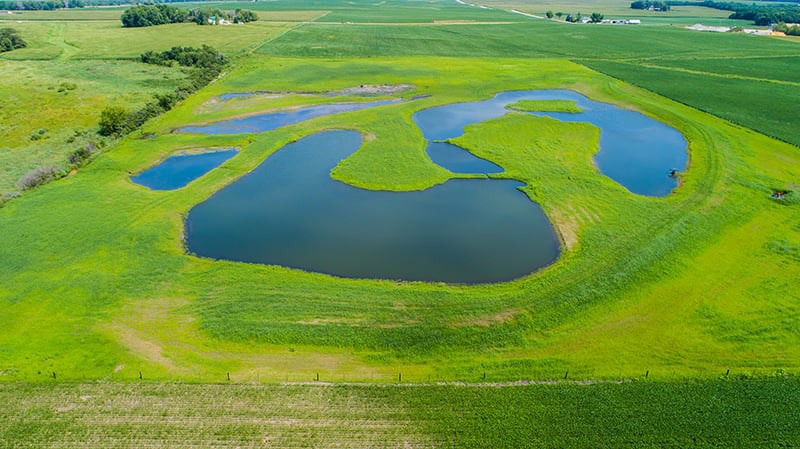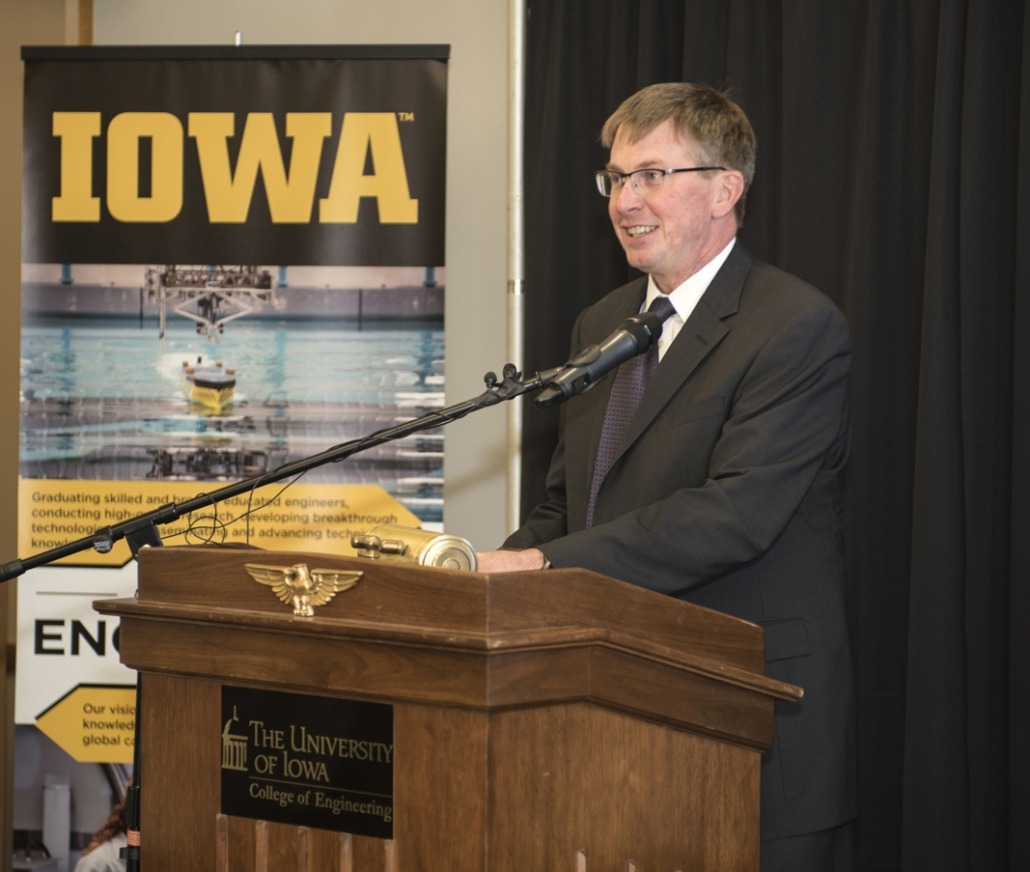Weber Receives American Water Resources Association Award
University of Iowa Professor of Civil and Environmental Engineering and Iowa Flood Center (IFC) co-founder Larry Weber has won the prestigious Integrated Water Resources Management Award, presented by the American Water Resources Association.
Weber says he feels a deep-rooted passion and commitment to the state of Iowa and its natural resources. “I feel a responsibility to the people of Iowa.”
The award recognizes Weber’s significant contributions to the improvement and transformation of watershed management in Iowa and beyond. In 2009, after floods devastated Iowa in 2008, he worked alongside his colleague Witold Krajewski (IFC director) to establish and bring the Iowa Flood Center to the University of Iowa. The IFC is the nation’s first and only university-based academic research center focused solely on flood-related research and education. Weber’s vision, leadership, and expertise have helped bring over $100 million to the state through the Iowa Watershed Approach (IWA) program, funded by the U.S. Department of Housing and Urban Development and similar programs. The IWA leverages local, state, and federal partnerships to develop equitable strategies to reduce flooding, improve water quality, and increase community resilience to water resources challenges.

A 25-acre wetland complex constructed in the Middle Cedar River Watershed through the IWA.
The IWA works progressively with agriculture and landowners to identify priority areas in select watersheds to implement flood mitigation practices, such as ponds, terraces, and wetlands, which work to restore the landscape’s natural resiliency to heavy rainfall. IWA researchers use GHOST (Generic Hydrologic Overland-Subsurface Toolkit), a new state-of-the-art watershed-scale hydrologic model developed for the project by IFC researchers. GHOST informs the implementation of the IWA’s flood mitigation practices. Volunteer landowners can receive up to 90 percent cost-share assistance to implement the practices. The dual program also focuses on community flood resilience programming and helps protect vulnerable populations from flooding. By the program’s sunset in 2022, nearly 800 conservation practices will have been installed and over $30 million allocated for conservation.
“I’m incredibly proud of the work that’s been accomplished through the IWA and I’m happy to accept this award on behalf of everyone who has contributed to its success.” says Weber. “We have a lot of work left to do, but the goal is for the momentum to continue as we move forward.”
Weber has been instrumental in building and promoting Iowa’s unique watershed management authorities (WMAs) to help carry out the goals of the Iowa Watershed Approach. The WMAs are at the heart of the IWA, bringing together representatives from cities, counties, soil and water conservation districts, and other partners and stakeholders who work together on strategic watershed planning and management activities. The WMAs build local capacity and serve as a mechanism to sustain and advance the goals of the IWA into the future.
“It’s all about people. I will always hold dear the friendships I’ve made through the WMAs with people from all corners of the state,” says Weber.

Larry Weber speaks at the 10th anniversary celebration for the Iowa Flood Center, which he co-founded with IFC Director Witold F. Krajewski.
The success of the IWA depends on collaborative partnerships among many statewide organizations and local stakeholders; together, they carry out the work necessary to achieve the IWA goals. Partners include but are not limited to: U.S. Department of Housing and Urban Development; Iowa Economic Development Authority; Iowa Homeland Security and Emergency Management; University of Iowa; Iowa State University; University of Northern Iowa; Iowa Department of Natural Resources; Iowa Department of Agriculture and Land Stewardship; cities of Coralville, Dubuque, and Storm Lake; and many Iowa counties and private contractors. These partnerships have evolved to support many other projects built on the framework of the Iowa Watershed Approach.
Weber holds the Edwin B. Green Chair in Hydraulics at the University of Iowa and served as director of the world-renowned IIHR—Hydroscience and Engineering research institute for 13 years. He is also co-founder of the Iowa Nutrient Research Center, which is housed at Iowa State University. As a service to the state of Iowa, he is a member of the Water Resources Coordinating Council and was part of the governor’s 2019 Flood Recovery Advisory Board. He frequently presents to community groups on water resources-related topics and serves on numerous state and federal agency committees related to water resources planning.
Weber says he feels a deep-rooted passion and commitment to the state of Iowa and its natural resources. “I feel a responsibility to the people of Iowa.”




